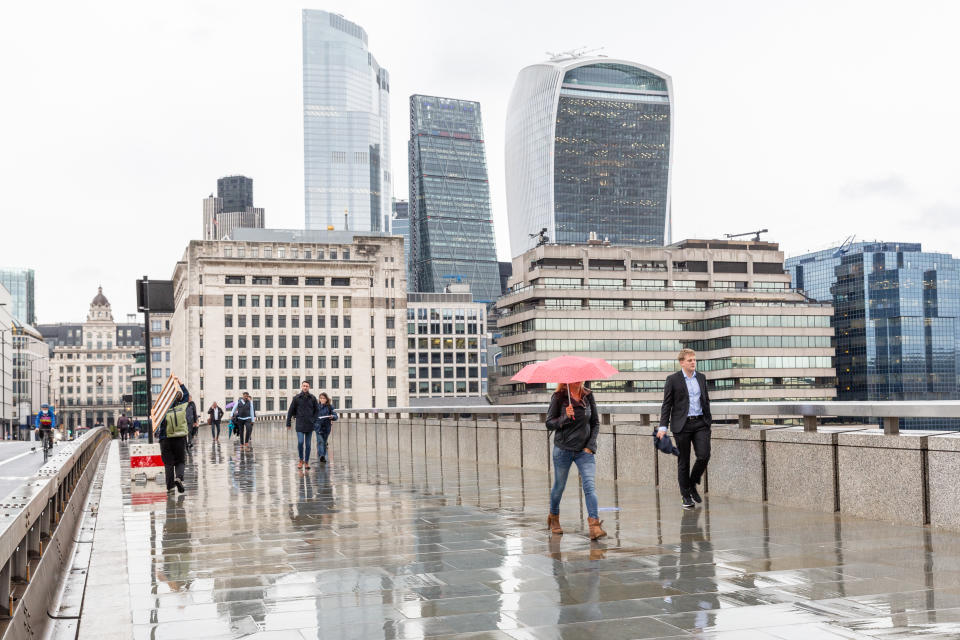Britain's cities will look different in post-pandemic world, according to business leaders

Britain's cities will look and feel very different in the future, according to an exclusive survey of business leaders.
Experts claim Covid-19 and the growing climate crisis have caused a seismic shift in the way our cities are viewed.
According to research commissioned by E.ON, 92 percent of business leaders have made sweeping changes to the way they operate, with 44 percent planning for long-term flexible and remote working.
The new normal will see nearly four in ten downsize their office space and 44 percent become more digital – all of which have the potential to radically alter the make-up of cities across the UK.
These changes must be balanced with ongoing sustainability efforts to help meet the UK’s target of net zero emissions by 2050, with four-fifths saying they are actively seeking ways to make their companies more environmentally friendly.
Indeed, nearly half of business leaders claim the cities in which they operate are no longer suitable for their needs. To explore how businesses and cities could work together to map a green recovery from the pandemic and prepare communities to tackle the climate crisis, E.ON convened a panel of leading experts across local government, academia and business.
“You can’t dissociate where you run your business or how you run it from where people live and where they enjoy themselves," said Ricky Burdett, professor of Urban Studies at London School of Economics and director of LSE Cities.
"As such, what the current pandemic has shown is that there is a clear link between the physical organisation of the city and the way we live, work and the ways we can improve our wellbeing, safety and the future of our planet.”
Cities of the future could see more multi-use public spaces, smart mobility and cycle lanes replacing cars and flexible buildings, where homes are office space and office space becomes hotels.
"If Covid-19 has shown us one thing, it is that the power of big government often becomes fragile under a crisis – which is a worrying thought as the climate crisis continues to accelerate," said Martin Reeves, chief executive of Coventry City Council. "However, with clarity, radical thinking and a coalition of partners who have something to gain – we can reimagine cities and create a positive future for all.”
However, nearly two-thirds of business leaders in E.ON’s survey said their rapid response to the pandemic has made them more confident of success when making significant changes to their business in the future.
“Housing, air quality, carbon reduction and inequality: to solve these issues we need to look at them holistically – for example, the question should not be how can we transition to renewable energy, but rather how can we do so in a way that doesn’t exclude those in fuel poverty," said E.ON's Philip Wallace.
"This will come about from long-term, local partnerships between businesses and city leaders that have the community at the heart. If we get that right, then cities will prove to be the key to recovering from Covid-19 and combatting the climate crisis.”

 Yahoo Sports
Yahoo Sports 